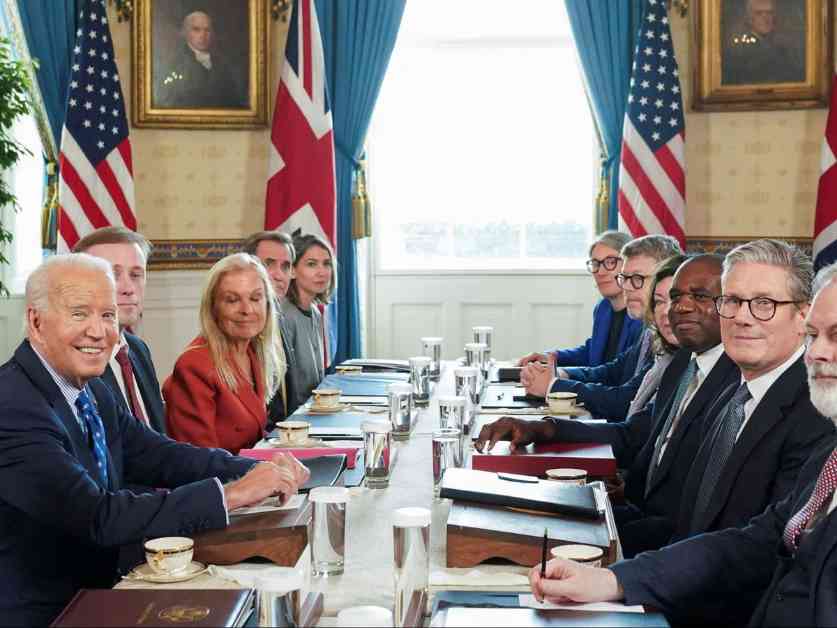Putin’s Influence on Starmer’s Foreign Policy Decision
As Keir Starmer embarked on his trip to meet with US President Joe Biden, little did he know the diplomatic storm that awaited him. The issue at hand was whether to allow Ukraine to use long-range Storm Shadow missiles against targets in Russia, a decision that could have far-reaching implications on the ongoing conflict in the region.
The decision was supposed to be made discreetly, with further discussions planned at the United Nations General Assembly in New York. However, the carefully choreographed series of events leading up to the meeting indicated that this was a pivotal moment that could potentially change the course of the war and impact Nato’s support for Ukraine.
Despite attempts to downplay the significance of the trip, it was evident that the meeting between the outgoing US president and the newly elected UK prime minister was primarily focused on this critical decision. The tension was palpable as both sides prepared to engage in discussions that could have lasting consequences.
Putin’s Warning and the Unraveling of Plans
Just minutes before Starmer was set to address journalists accompanying him on the trip, news broke that Russian President Vladimir Putin had issued a stark warning. He stated that any use of the missiles in Russia would be seen as an act of war against Nato, escalating tensions and adding pressure to the already delicate situation.
Despite the mounting challenges and threats from Putin, Starmer remained defiant, asserting that “Putin started it.” His unwavering confidence in the face of adversity highlighted the seriousness of the situation and the need for decisive action.
However, as the trip progressed, it became increasingly clear that the initial plans were unraveling. The UK’s attempts to disavow previous statements made by key officials only added to the confusion and uncertainty surrounding the decision-making process.
The Meeting with Biden and the Path Forward
As Starmer and his team met with President Biden at the White House, the mood was tense, with discussions veering off course and no concrete decisions being made. Biden’s demeanor reflected the complexity of the situation, as he emphasized the importance of long-term strategic discussions on various global issues.
Despite the lack of a definitive outcome during the meeting, the talks were set to resume at the United Nations General Assembly in New York. The delay in making a decision on the Storm Shadow missiles underscored the challenges and complexities involved in navigating foreign policy decisions in a rapidly evolving geopolitical landscape.
As Starmer boarded the plane back to the UK, there was a sense of missed opportunity and the realization that tough decisions lie ahead. The need for a cohesive and assertive approach to foreign policy, particularly in dealing with adversaries like Putin, became more apparent than ever.
In conclusion, the events surrounding Starmer’s trip to the US shed light on the intricate web of international relations and the influence of key players like Putin on foreign policy decisions. The path forward remains uncertain, but the need for strategic clarity and decisive action is more crucial than ever in addressing the complex challenges facing the global community.












